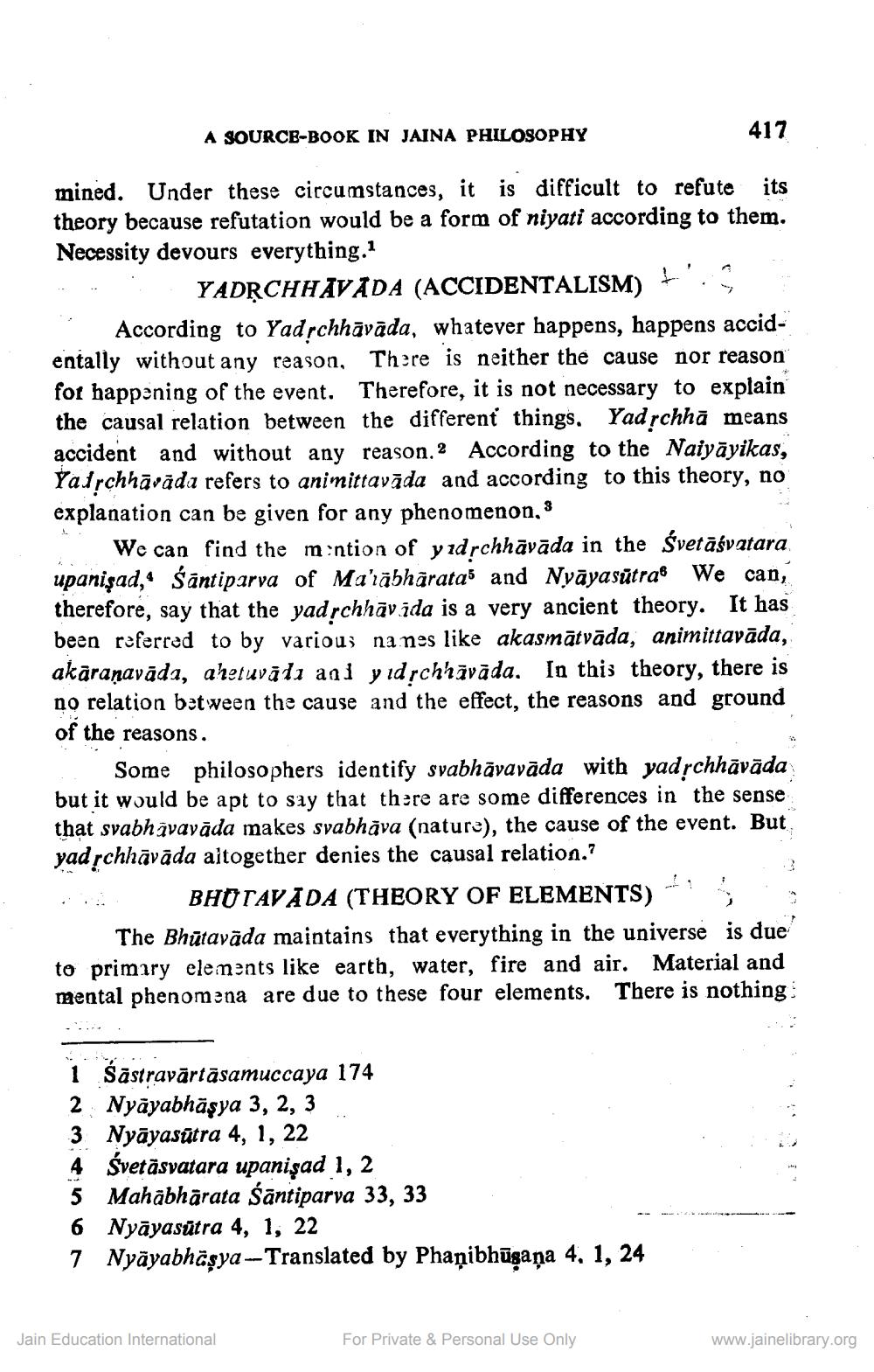________________
A SOURCE-BOOK IN JAINA PHILOSOPHY
its
mined. Under these circumstances, it is difficult to refute theory because refutation would be a form of niyati according to them. Necessity devours everything.1
YADṚCHHAVADA (ACCIDENTALISM)
L
According to Yadṛchhavada, whatever happens, happens accidentally without any reason. There is neither the cause nor reason for happening of the event. Therefore, it is not necessary to explain the causal relation between the different things. Yadrchha means accident and without any reason.2 According to the Naiyāyikas, Yadṛchhavada refers to animittavada and according to this theory, no explanation can be given for any phenomenon, 3
417
We can find the mention of yidṛchhāvāda in the Śvetāśvatara upanisad, Santiparva of Mahabharatas and NyāyasutraR We can, therefore, say that the yadṛchhavida is a very ancient theory. It has been referred to by various names like akasmātvāda, animittavāda, akāraṇavāda, ahetuvada and yidṛchhavada. In this theory, there is no relation between the cause and the effect, the reasons and ground of the reasons.
Some philosophers identify svabhāvavāda with yadṛchhāvāda but it would be apt to say that there are some differences in the sense that svabhavavāda makes svabhāva (nature), the cause of the event. But yadṛchhāvāda altogether denies the causal relation."
BHUTAVADA (THEORY OF ELEMENTS)
The Bhutavāda maintains that everything in the universe is due to primary elements like earth, water, fire and air. Material and mental phenomena are due to these four elements. There is nothing:
1 Sāstravārtāsamuccaya 174
2 Nyayabhāşya 3, 2, 3
3 Nyāyasūtra 4, 1, 22
4 Svetasvatara upanisad 1, 2
5 Mahabharata Śāntiparva 33, 33
6 Nyāyasutra 4, 1, 22
7 Nyayabhāṣya-Translated by Phaṇibhūṣaṇa 4, 1, 24
Jain Education International
For Private & Personal Use Only
www.jainelibrary.org




